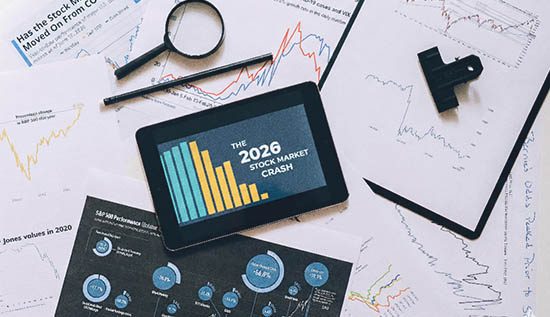SEO vs. Paid Ads: Which Marketing Strategy Works Best?

👉 SEO vs. Paid Ads: Which is Best for Your Business? Discover the pros, cons, and cost-effectiveness of SEO vs. PPC. Learn which strategy drives more leads, organic traffic, and long-term growth!
In today's digital marketing landscape, businesses have two primary approaches for increasing their online visibility—Search Engine Optimization (SEO) and Paid Advertising (PPC, Google Ads, Facebook Ads, etc.). Choosing between SEO and PPC depends on business goals, budget, and long-term strategy. While SEO focuses on organic traffic, paid ads aim to generate instant leads and conversions through paid traffic.
For small businesses, the key question is: Should you invest in SEO or Google Ads? Let's explore the cost-effectiveness of SEO and paid ads, their benefits, and which approach is the best online marketing strategy for businesses.
Understanding SEO and Paid Ads
What is SEO?
Search Engine Optimization (SEO) is a process of optimizing a website to improve its ranking in organic search results. The primary objective of SEO is to attract organic traffic from search engines like Google.
Key Components of SEO:
- On-Page SEO – Optimizing content, keywords, meta tags, and user experience.
- Off-Page SEO – Building backlinks and increasing website authority.
- Technical SEO – Enhancing site speed, mobile-friendliness, and indexability.
SEO requires time and effort, but once a website ranks well, it continues to drive consistent organic traffic without ongoing ad costs.
What is PPC (Paid Ads)?
Pay-Per-Click (PPC) advertising, commonly known as paid ads, is a marketing strategy where businesses bid on keywords to display ads on Google, Bing, or social media platforms. Unlike SEO, PPC provides instant visibility but requires continuous investment.
Key PPC Platforms:
- Google Ads (formerly AdWords) – Appear on top of Google search results.
- Facebook & Instagram Ads – Target specific demographics and interests.
- LinkedIn Ads – Best for B2B marketing.
- YouTube Ads – Video advertising for brand awareness.
Paid ads are highly effective for lead generation and quick sales, but they stop driving traffic once the budget runs out.
SEO vs. Paid Ads: Which One is Better?
Both strategies have their strengths and weaknesses. Let's compare SEO vs. PPC based on several key factors:
1. Cost-Effectiveness of SEO and Paid Ads
- SEO: Requires initial investment in content, link building, and optimization. However, once rankings improve, traffic comes for free, making it a cost-effective long-term strategy.
- PPC: Involves ongoing expenses, where advertisers pay per click. It provides instant results, but once the budget is exhausted, traffic disappears.
👉 Verdict: SEO is more cost-effective in the long run, while PPC is ideal for businesses needing immediate leads.
2. Organic Traffic vs. Paid Traffic
- Organic Traffic (SEO): Free, sustainable, and builds credibility over time.
- Paid Traffic (PPC): Requires constant funding but delivers immediate results.
👉 Verdict: SEO is a long-term investment, whereas PPC is a short-term solution.
3. SEO vs. Google Ads: Which Drives More Leads and Conversions?
- SEO: Leads from organic searches tend to be higher quality since they come from users actively searching for relevant information.
- Google Ads: Offers instant visibility and can be fine-tuned with audience targeting.
👉 Verdict: PPC generates faster leads, but SEO builds consistent and sustainable conversions over time.
4. Comparing SEO and PPC for Long-Term Business Growth
- SEO: Generates a compounding effect—the longer you invest, the better your website ranks.
- PPC: Stops working when the ad budget is paused.
👉 Verdict: SEO is best for long-term growth, while PPC is better for quick wins.
Choosing Between SEO and PPC
If you're unsure which marketing strategy works best, consider these scenarios:
| Business Goal | Best Strategy |
|---|---|
| Brand Awareness & Credibility | SEO |
| Quick Lead Generation | PPC |
| Sustainable Growth | SEO |
| Launching a New Product | PPC |
| Tight Budget | SEO |
| Testing Market Demand | PPC |
👉 Small businesses should focus on SEO for long-term growth and use Google Ads or PPC for short-term boosts.
Benefits of SEO vs. PPC
Advantages of SEO:
✅ Cost-Effective: Once optimized, traffic is free.
✅ Long-Term Growth: SEO results last for years.
✅ Higher Click-Through Rates (CTR): Organic listings get more clicks than paid ads.
✅ Credibility & Trust: Users trust organic results over ads.
Advantages of PPC:
✅ Instant Results: Ads appear immediately after launching a campaign.
✅ Precise Targeting: Reach specific audiences based on location, interests, and behavior.
✅ Scalability: Increase leads and sales instantly.
✅ Great for Time-Sensitive Promotions: Best for seasonal offers, events, or new product launches.
SEO or Google Ads for Small Business?
For small businesses, SEO and PPC should be used together for a balanced digital marketing strategy:
- Start with PPC (Google Ads) to gain quick traffic.
- Invest in SEO to reduce reliance on paid ads.
- Use both strategies for maximum online visibility.
👉 Best Approach: Use PPC for short-term gains and SEO for long-term growth.
Conclusion
So, SEO vs. paid ads—which is better? The answer depends on your business goals.
- If you need immediate traffic and leads, go for PPC (Google Ads).
- If you want cost-effective, long-term growth, invest in SEO.
- If possible, use both SEO and PPC to get the best of both worlds.
For small businesses, SEO is the best investment, while paid ads can supplement growth. By combining search engine optimization and paid advertising, businesses can achieve higher leads, better conversions, and long-term success.
More Articles
 24 Jan 2026
24 Jan 2026
Industry 4.0 Trends: Top Technologies & Business Impact 2026
Industry 4.0 trends shaping 2026, covering smart factories and real business impact across industries.
 24 Jan 2026
24 Jan 2026
AI in Recruitment 2026: Trends, Tools & Benefits
Discover how AI in recruitment 2026 will reshape hiring, tools, and talent strategies for modern HR teams worldwide.
 23 Jan 2026
23 Jan 2026
Different Types of Malware Explained with Examples (2026)
Updated 2026 overview of different types of malware explained with examples, including ransomware, spyware, botnets, and modern attack methods.
 22 Jan 2026
22 Jan 2026
Security Operations Center Services: Features & Benefits
Security operations center services featuring SOC incident response services and coordinated cyber defense.